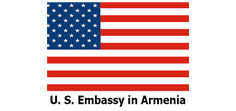Russian Foreign Ministry spokeswoman Maria Zakharova said during a briefing that the overthrow of the current Ukrainian authorities was not one of the goals of Russia’s “special operation” launched on the territory of that country on February 24.
“The goals of the special military operation are: the defense of the DPR and LPR, the demilitarization and de-Nazification of Ukraine, the elimination of the military threat ․․․ Its objectives do not include the occupation of Ukraine, the disintegration of its statehood, or the overthrow of the current government. It is not directed against the civilian population,” Zakharova said.
Fact Investigation Platform examined the recent public speeches of Russian President Vladimir Putin and top leadership in Russia, noting that official Moscow’s rhetoric about Kyiv’s government had changed over the days.
In particular, in his message announcing the start of hostilities in Ukraine, Russian President Vladimir Putin said that their purpose was to “protect the people who have been ridiculed and subjected to genocide by the Kyiv regime for eight years” and that “Ukraine should be demilitarized and de-Nazificated” to prosecute war criminals responsible for “bloody crimes against civilians.”
Already on the second day of the war, on February 25, during a video conference with members of the government, Putin openly called on the Ukrainian military forces for a military coup, calling the Kyiv’s current government “neo-Nazi” and “drug addict.”
“Once again I appeal to the Ukrainian military, do not allow the neo-Nazis, the Banderovcis to use your children, women and the elderly as a living shield, take power into your own hands. It seems that it will be easier to reach an agreement with you than with this group of neo-Nazis and drug addicts hiding in Kyiv, who have taken the entire Ukrainian people hostage,” the RF president said.
After Putin’s statement, Russian representatives in Belarus have already sat down at the negotiating table with the Kyiv’s current government three times, and Putin’s spokesman Dmitry Peskov told reporters on March 1 that the Kremlin considers Vladimir Zelensky the legitimate president of Ukraine.
Thus, the direct calls from official Moscow for a change of “drug-addicted” and “neo-Nazi” authorities in Kyiv have been replaced by rhetoric tolerating the existence of those authorities.
Nane Manasyan

 FACTOMETER
FACTOMETER











